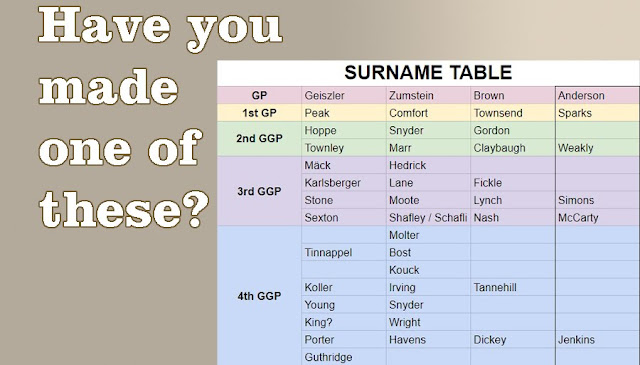What Voice Should I Use When I Write Family Histories?
Ask the Family History Fanatics: Voice should I use when I write my family history? I want to share my family history but I also want to write commentary on that family history. Should I write solidly in the third person or should I switch between first-person and third-person?What a GREAT question for a family history writer. The first reason is that there is a specific task associated with the question. Otherwise, the answer would be 'it depends.'
Let's dissect a few things and then provide the advice appropriate for this situation.
Voice in writing can have two meanings. The first is the sentence structure to be either passive or active. The second deals with a story's narrator and which perspective they use.
Active vs. Passive Voice
The short answer is to use active voice as often as possible. For some of us, this is difficult to do when writing in the past. In fact, when an editor reviews the rough drafts of my narratives for ancestors, passive voice is my number one nemesis.
Here's an example of passive voice.
Genealogists know that the graveyards have rich genealogical details waiting to be unearthed
Here's an example of active voice.
Genealogists may unearth rich genealogical details that await in graveyards.
The word 'unearthed' to does provide the action to the genealogist who does the digging. In the second sentence, the research is actively discovering details in the graveyard.
If you have trouble knowing how to fix passive voice errors, seek out the help of an editor or an editorial assistance (such as Grammarly.com). For the most part, I attempt to solve passive voice errors. There are times when the passive voice works, so let it stand.
Narrator's Voice
Generally, people want to know if they should write in First Person, Third Person, or Third Person Omniscient when writing a family story. (There are three other narrative styles, but they rarely apply to historical writing.)
Quickly stated, the three narrative voices are:
- First Person: The narrator tells the story and uses the pronoun I. Often used in memoir writing, "I recall..." or "I felt..."
- Third Person: Narrator reports on the actions of one individual but does not have access to their thoughts. Uses the pronoun "he," "she" when talking about the central person in the story.
- Third Person Omniscient: All-knowing narrator that can follow one or more individuals in the story and access their thoughts and actions.
There is a new-to-me narrative style that I discovered on the Now Novel website. That is of the Observer-Narrator. This can use first or third person pronouns but is a witness in the story retelling. So, the witness can follow multiple characters but does not have access to their thoughts.
Which Voice to Use?
Using this point of view, the writer can add their commentary using the personal pronouns "I." This allows for their thoughts, impressions, and explanations regarding the choices and actions of the ancestor they are writing about. When the writer refers to the ancestor or the individuals that interact with this relative, they'll use the third person pronouns of "he," "she," "they," etc.
The challenge is if the narrator wants to use the pronoun "we" as that can be very confusing to a reader. Did the writer mean we, which includes the author and additional living relations in present day or did the author mean we, which involves the relative from the past and the author at that time? Or does it mean something else? Be very careful if you chose to write a family history that includes commentary when you encounter a 'we' situation.
Does It Meet The Standards?
In genealogical writing, this Observer-Narrator format might break down if you're a high-stickler against putting any bias upon a past person or event. There is the potentiality that your writing will incorrectly alter the perception people have about what is fact, opinion, or opinion. I often don't recommend inventing dialog for your relatives when you've never heard them speak or have no audio recording of them. When you do, you create a character sketch that might not be accurate. You make the relative more educated, opinionated, or even racist than they really were. So, I continue to recommend against inventing dialog.
However, I read about people from the past to understand their choices and their impact on my life. As such, I think if you're up to the challenge of writing and adding commentary, then feel free to do it within your writing from the Observer-Narrator perspective.
However, this narrative style could be difficult for you. If that's the case, write your entire family history story in the third person limited narrator. When you wish to add commentary, create a footnote or endnote that provides that additional insight without inserting itself into your story. Think of this strategy as a literary critique. Reflect on a high school or college English reading assignments such as Jane Eyre or Beowulf. Often a professor or teacher will assign the book that also has footnotes and critiques to help you better understand the terms, philosphy, or other analysis of the works. That's essentially what you could do if you write commentary into your family history.
Ask the Family History Fanatics Fans: How would you write your family history and incorporate commentary? Share your thoughts below. If you have an example of a writer who has successfully published such a project, let us know in the comments as well.




Comments
Post a Comment